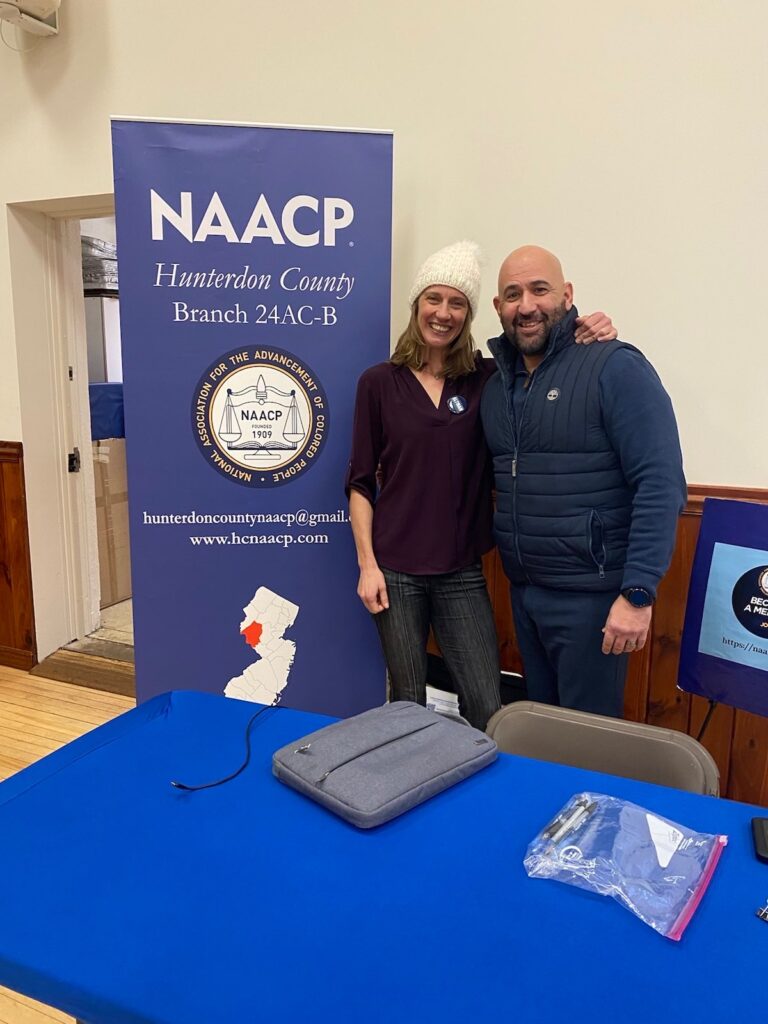Improving police and community relations key to improving public safety

Improving police and community relations key to improving public safety
By Sue Altman and V. Harrison Dillard
Sue Altman is a candidate for New Jersey’s 7th Congressional District and V. Harrison Dillard is President and Founder of the NAACP of Hunterdon County, as well as a current Chief of Police.
Over the past few weeks there were several break-ins in homes across Summit, and the rise in crime has not gone unnoticed across our community. Residents are concerned by the increase in car theft, break-ins, and shoplifting, and people have an overarching sense that our communities are less safe than they used to be. All the while, residents are frustrated by what they perceive to be a two-tiered criminal justice system: one for the rich and politically-connected, and one for everyone else. And, in New Jersey and across the country, we’ve seen a dramatic increase in hate crimes, especially those directed against the Jewish and Muslim communities, which have quadrupled in the past few years.
Now more than ever, at both the local and national levels, support for American institutions- especially those responsible for law enforcement – is critical. We must stand up for law and order and public safety in a way that is both effective and consistent with our American values, especially those which undergird a dynamic and diverse democracy. We must not cede the issue to those who are willing to prey on people’s very real fears to sell them a hate-filled agenda that helps no one and privileges the very few. We need a vision for public safety that is effective, inclusive and keeps our communities safe, and when we are in power, we must play by the rules.
Support for our law enforcement institutions means we must invest in three legs of a stool: local (better hiring and training practices), community (investments in wrap-around services) and federal (investments in investigating white collar, political corruption and corporate crime). We know many of the solutions we keep hearing are not the answer: More guns on the streets, more surveillance, and more people in prison. Those of us who have worked in law enforcement know this mess of hypocrisy and convoluted ideas are not the answer- for neither our democracy nor our public safety. These ideas will only lead to an ineffective cycle of disinvestment, crime, and incarceration, and the moral inconsistency of a two-tiered system where only some of us are held accountable and the powerful walk free.
We know that defunding the police is not the answer: Policing at every level requires skills we must invest in. But what does an adequately funded local police department look like in practice?
Policing is an exceptionally difficult, dangerous job, and those who chose to serve our communities deserve respect, training and resources. These are skilled professionals who care about their communities, and must be treated as such. And, police departments are at their strongest when they represent the communities they serve. Previous generations of police leadership have not accurately represented the demographic composition of our communities , so we should not be surprised when the generations that follow have the same composition. We must work proactively to find and train more qualified people of color and women for those positions.
We can do this by championing the civil service process instead of leaning away from it. Civil service commissions have historically played an important role in ensuring local governments can recruit a diverse set of qualified public servants. We can do the same with law enforcement by increasing cooperation between the civil service commission and local law enforcement agencies and creating more shared applicant pools. When our police departments are more diverse, all of us are safer.
In our communities, a commitment to public safety requires investments in systems that touch human lives and end violence and crime before it even starts. We know that many of the people commiting car break-ins are young people. Instead of stripping funding from schools, mental health services and after school programs, we must stand strongly by these programs, not only for their moral necessity, but also because they are proven to work alongside a properly funded, multi-pronged law enforcement apparatus. When New Jersey’s communities are thriving, we all experience less crime. Our vision for public safety includes important investments at every level.
It is also important that our country’s law enforcement is consistent in prosecuting white collar and political crime. Our democracy depends on it. At the national level, law enforcement professionals create crucial accountability systems - so that the politically connected and corrupt actors on both sides of the aisle cannot leverage their political power for personal gain. The law enforcement institutions that prosecute these bad actors must also receive proper investment. Regardless of party, rules must be consistently upheld, even when those who do wrong are powerful politicians. On January 6, Capitol Police lost their lives during a violent insurrection, and the same forces that sought to overturn our election have been enabled by those who refuse to condemn the insurrection.
Unfortunately, there are many who have a vested interest in preying on people’s fears about crime for their own nakedly cynical purposes. We need to combat this pervasive fear mongering by taking people’s concerns about crime seriously and addressing them with real solutions that are consistent with our values. By embracing holistic policing solutions and creating diverse, well-trained police departments that are representative of our communities, we can take back the narrative around public safety from those who wish to divide us.





